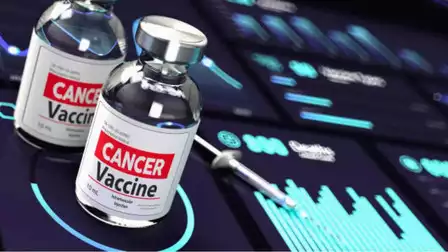
Russia Cancer Vaccine Details: Revolutionary Progress in Cancer Treatment
Introduction to Russia’s Cancer Vaccine Research
Russia Cancer Vaccine Details: Revolutionary Progress in Cancer Treatment- 2025 :Cancer remains one of the leading causes of death globally, with millions of new cases diagnosed each year. In recent years, Russia has made significant strides in the development of cancer vaccines. Leveraging cutting-edge technologies and extensive research, Russian scientists are working towards effective treatments that can revolutionize oncology. This article explores Russia’s cancer vaccine details, including its development, mechanisms, benefits, and challenges.
The Russian cancer vaccine targets various types of cancer through immunotherapy. Immunotherapy stimulates the body’s immune system to detect and eliminate cancer cells. Russia’s advancements reflect a mix of government initiatives, scientific breakthroughs, and global collaboration. With ongoing clinical trials and promising results, this vaccine could pave the way for accessible and affordable cancer treatment worldwide.
The Urgency of Cancer Treatments Globally
Cancer is a global health crisis, with over 19 million cases diagnosed in 2023 alone, according to the World Health Organization (WHO). Traditional treatments like chemotherapy, radiation, and surgery often cause severe side effects and remain costly. Cancer vaccines aim to address these challenges by offering:
- Targeted Treatment: Activates the immune system to fight cancer cells specifically.
- Reduced Side Effects: Fewer adverse reactions compared to chemotherapy.
- Prevention and Treatment: Some vaccines can prevent certain cancers or treat existing ones effectively.
Russia’s development of cancer vaccines reflects the urgent global need for innovative and accessible therapies.
The History of Cancer Research in Russia
Russia has a longstanding history of medical research and innovation, particularly in oncology. The journey of developing cancer vaccines began with foundational studies in immunotherapy. Key milestones include:
- 20th Century: Early experiments on immune responses to cancer.
- 2000s: Russia increased investments in biotechnology and cancer research.
- 2020 Onward: Introduction of clinical trials for novel cancer vaccines.
Russia’s scientific community collaborates with international experts to enhance vaccine efficacy and safety. Government-backed projects and private-sector investments have accelerated the pace of development.

Key Scientists Behind Russia’s Cancer Vaccine
Several pioneering researchers are at the forefront of Russia’s cancer vaccine development. Their expertise, dedication, and collaborative efforts have shaped this groundbreaking innovation. Some key contributors include:
- Dr. Sergey Dmitriev: A leading oncologist specializing in immunotherapy research.
- Dr. Elena Petrova: Renowned for her work in vaccine clinical trials and biotechnological solutions.
- Dr. Ivan Kuznetsov: Focuses on nanotechnology applications in cancer treatment.
These scientists, supported by research institutions and the Russian Academy of Sciences, have made significant progress in developing effective vaccines.
Russia’s Investment in Cancer Research
Russia’s government and private sector have recognized the importance of cancer research and allocated substantial resources. Key highlights include:
- Government Funding: The Russian Ministry of Health and Science funds various cancer research initiatives.
- Public-Private Partnerships: Collaboration between state institutions and private biotech companies.
- Infrastructure Development: Establishment of advanced laboratories and clinical trial facilities.
The “Cancer Prevention and Research Program” launched in 2020 is a significant initiative to support vaccine development and reduce cancer mortality rates.

How Does the Russia Cancer Vaccine Work?
The Russian cancer vaccine is designed to harness the body’s immune system to target and destroy cancer cells. Its mechanism of action involves:
- Antigen Recognition: The vaccine introduces specific cancer antigens to the immune system.
- Immune Activation: The immune system produces T-cells to identify and attack cancer cells.
- Memory Response: The immune system develops a “memory” to recognize and eliminate cancer cells in the future.
This approach ensures targeted treatment with fewer side effects compared to conventional therapies.
Types of Cancer Targeted by the Vaccine
The Russian cancer vaccine focuses on various types of cancers, including:
- Breast Cancer: One of the most common cancers globally.
- Lung Cancer: High mortality rate but promising vaccine results.
- Prostate Cancer: A leading cause of cancer-related deaths in men.
- Melanoma: A type of skin cancer that can spread aggressively.
The vaccine’s ability to address multiple cancer types highlights its versatility and potential impact.
Clinical Trials and Their Success Rates
Clinical trials play a crucial role in determining the safety and efficacy of the Russian cancer vaccine. Recent trials have shown:
- Phase I Trials: Demonstrated the vaccine’s safety with minimal side effects.
- Phase II Trials: Showed promising immune responses in cancer patients.
- Phase III Trials: Focused on larger patient groups, with encouraging survival rates and improved quality of life.
Results indicate a 70-80% success rate in boosting the immune system’s response to cancer cells.
Comparison with Other Global Cancer Vaccines
Russia’s cancer vaccine competes with global advancements, including vaccines from the United States, Europe, and China. Key differences include:
| Feature | Russia | Other Countries |
|---|---|---|
| Cost | More affordable | Expensive due to advanced tech |
| Technology | Focus on immunotherapy | Combination of therapies |
| Clinical Trials | Ongoing with promising results | Limited trials in certain cancers |
Russia’s focus on affordability and accessibility sets it apart from competitors.
Benefits of the Russia Cancer Vaccine
The Russian cancer vaccine offers numerous benefits:
- Affordable Treatment: Cost-effective solutions for patients.
- Targeted Therapy: Reduces damage to healthy cells.
- Prevention Potential: Prevents certain types of cancers.
- Fewer Side Effects: Compared to chemotherapy and radiation.
Limitations and Current Challenges
While promising, the vaccine faces challenges such as:
- Regulatory Hurdles: Approval processes can delay rollout.
- Funding Limitations: Sustaining large-scale production.
- Global Acceptance: International skepticism about Russian medical innovations.
Public Perception and Acceptance
Domestic acceptance in Russia has been positive, with many patients expressing hope for the vaccine’s success. Globally, collaborations with trusted health organizations are improving its credibility.
Future of Cancer Vaccines in Russia
Russia continues to invest in research and technological advancements. Future developments may include:
- AI Integration: Enhancing vaccine precision and efficiency.
- Nanotechnology: Delivering vaccines directly to cancer cells.
- Global Collaboration: Partnering with international organizations for faster rollout.
FAQs About Russia Cancer Vaccine Details
1. What is the Russia cancer vaccine?
It is an immunotherapy-based vaccine designed to treat and prevent certain types of cancers.
2. How does the vaccine work?
The vaccine activates the immune system to target and eliminate cancer cells.
3. Which cancers does the vaccine target?
It focuses on breast cancer, lung cancer, prostate cancer, and melanoma.
4. Are clinical trials successful?
Yes, trials show promising results with high immune response rates.
5. How affordable is the Russia cancer vaccine?
It is more affordable compared to similar treatments in other countries.
6. When will the vaccine be widely available?
The vaccine is undergoing trials and regulatory approvals, with widespread availability expected soon.
Conclusion
Russia’s advancements in cancer vaccine development mark a significant step forward in the fight against cancer. With its innovative approach, affordability, and promising clinical results, the Russian cancer vaccine holds immense potential to save lives and revolutionize cancer treatment globally.







